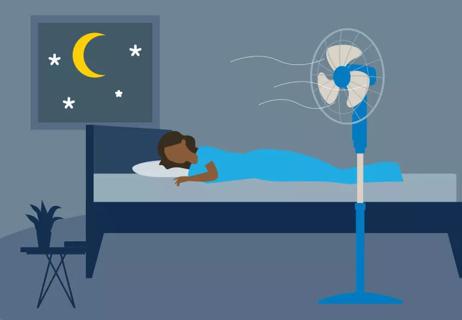Fight back + avoid weight gain

Ice cream, chocolate and cookies — a trio of snacks that can be tempting under stressful conditions. Or maybe you prefer salty and crunchy snacks when you want to indulge.
Advertisement
Cleveland Clinic is a non-profit academic medical center. Advertising on our site helps support our mission. We do not endorse non-Cleveland Clinic products or services. Policy
A bad day at work, a restless night of sleep, a fight with a friend or spouse — these can all trigger food cravings. Trouble is, for women during menopause and in later years, the negative health consequences of these choices, when made in excess, are intensified.
Hot flashes, sleep disturbances and mood swings — all a part of “the change” — can have women reaching for something sweet or salty to curb their discomfort.
The double-punch is that menopause occurs at a time in a woman’s life when her metabolism is slowing significantly, as part of the normal aging process. Turning to high-calorie comfort foods may make a woman feel better in the short term, but these foods can also cause weight gain that’s harder to burn off.
Still, there are ways to fight back and offset the tendency toward weight gain. Here dietitian Andrea Dunn, RD, LD, CDE, offers 6 tips:
Focus your diet on the less-processed foods like veggies, fruits, whole grains and lean meats. Also include some nuts, seeds and plant-based oils, like olive oil.
Calcium and magnesium are especially important for healthy bones in mid-life. Eat two to three servings of dairy each day for calcium. Eat nuts, beans, broccoli, spinach and whole grains for magnesium.
Advertisement
Quick, prepackaged foods are often high in calories that can add up quickly. When it comes to nuts and trail mix, the calories easily add up — think of one-quarter cup as a serving size or choose items that are 150 calories or less for a snack.
Examples of tasty and healthy food combos include an apple with one to two tablespoons of peanut butter, whole-grain crackers and cheese (1 oz.), or a quarter cup of hummus (or cottage cheese) on whole-grain toast.
Include vegetables at two or more of your meals (or snacks) each day. Try adding tomatoes or avocado to your breakfast plate. At lunch have raw vegetables with salsa as a dip. With your dinner meal have a half plate of cooked vegetables or salad. (Have you ever heard of anyone overeating vegetables?)
If you haven’t already been eating a variety of foods, it can be frustrating to think about making all of these changes at once. I tell my patients to make one change at a time — for example, pack a vegetable with your lunch. Each time you experience success, it will motivate you to take the next step.
Advertisement
Learn more about our editorial process.
Advertisement

Reaching menopause very early raises your risk of certain health conditions

Hormone changes can definitely leave you tossing and turning at night, but help is available

Losing menopause weight may take more effort, but it’s doable

A natural part of aging, there are typically three stages of menopause

Stay away from over-the-counter aids unless your doctor specifically recommends them

Lifestyle changes like diet modification and stress management can go a long way

If you’re feeling flushed and nervous, menopause could be the link

This ancient herbal supplement isn’t just a recent trend

Keeping a sleep diary and seeing a sleep specialist can help you stay asleep and get the ZZZs you need

Keeping a sleep diary and seeing a sleep specialist can help you stay asleep and get the ZZZs you need

Hormone changes can definitely leave you tossing and turning at night, but help is available